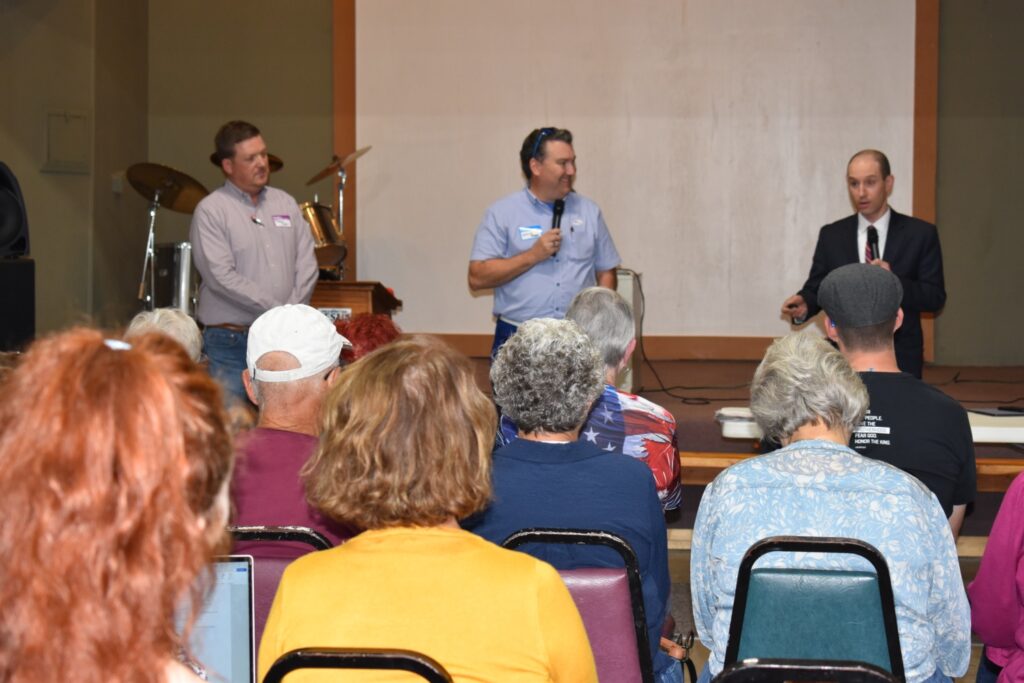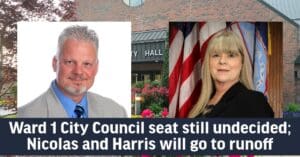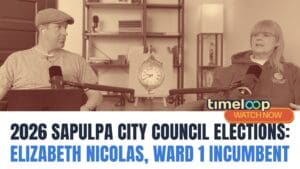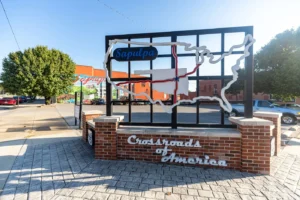Members of the Vote Yes Committee, as well as school officials and other proponents in support of the Chieftain Stronger 2023 school bond have been making the rounds this week, meeting with different groups and trying to get the information out there to give voters confidence in casting their decision next week.
One such meeting was the local conservative group Ladies for Liberty, which held an open meeting on Thursday evening to ask questions and voice concerns about the September 12th election. Former State Representative Mark McCollough, as well as Zach Robinson with Bank of Oklahoma, and members of Reed Architecture, were on hand to answer questions and talk with the group of forty or so constituents about the particulars regarding the bond.
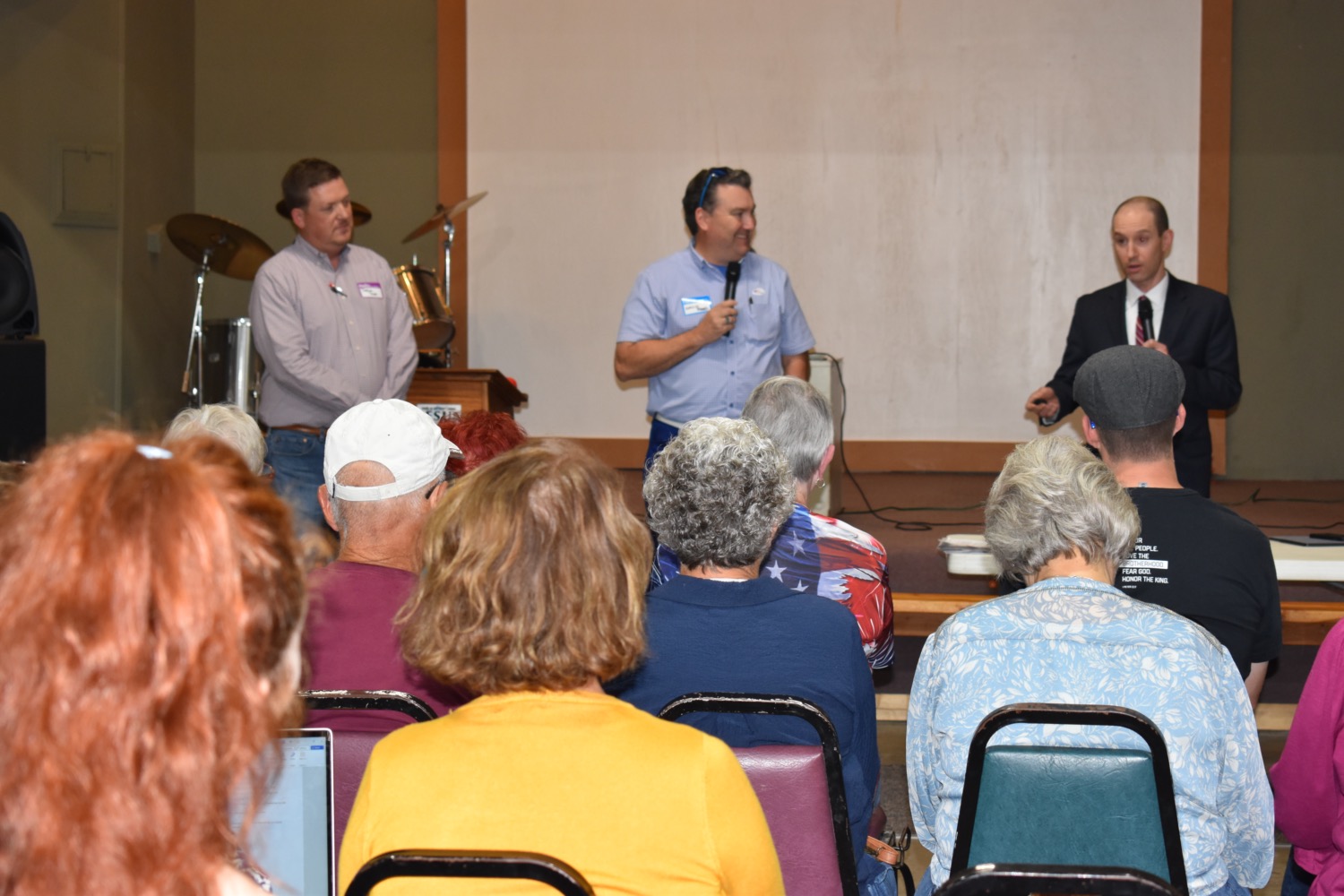
Sherry Capps, one of the leaders of Ladies for Liberty, opened the discussion with some concerns regarding the increase in taxes, which, if the school bond passes, will amount to an estimated $6.06 per home with an assessed value of $100,000. “It’s about $75 more a year, which is no big deal, but if that’s all you have in a house, can you afford an extra $75 a year? A lot of these folks are on fixed incomes.”
According to data from Sapulpa Schools administration, the district spends about $200,000 a year on maintenance to its facilities. Capps admitted that the aging of the school was an issue. “This is an old city, we need an influx of new life, I know we do. But I kind of like the city, and I don’t want to run people off just because they can’t pay their taxes.”
Other concerns that Capps shared had to do with how the school bond planning committee arrived at the numbers they did regarding the taxes, the number of years to carry out the bond, the expected interest rates on those bonds, and the increase in millage.
Zach Robinson spoke and began by assuring the crowd that “to every one of your questions, there is an answer. There is a legal process we have to follow, there are reasons why it’s so many years. There are answers to all the questions about taxes. No one is trying to avoid these questions.” Robinson also said that it was important to have these discusions. “It’s the most important thing for a school bond to have all the information out there so that everyone can make a decision on the merits of the plan,” he said.
The first one in the crowd stood up to ask about the proposed strategy by referring to a large project in nearby Jenks School District. “Did anyone look at what Kirby Lehman did to build the Jenks School District into the powerhouse it is today?”
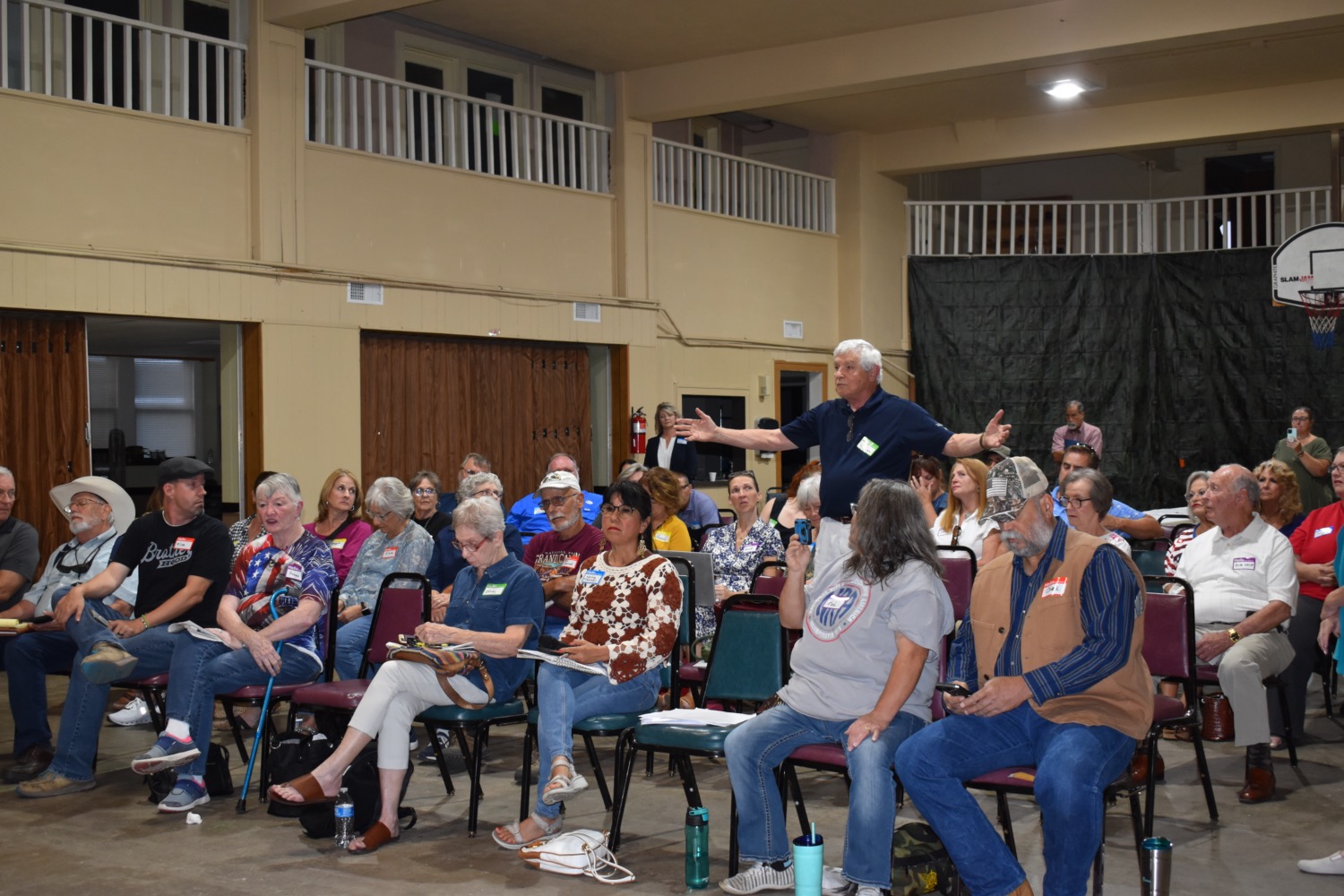
Lehman was the superintendent of Jenks Public Schools when they passed what was a record $153.4 million lease revenue bond issue approved in 2008. They were able to complete 19 projects within just five years time, including a $19 million Trojan Aquatic Center and a Science and Math Center for $23 million. There were also major construction projects for a new, spacious Education Service Center and the Frank Herald Fieldhouse. Much like Sapulpa’s proposed bond, a large portion of that money was also spent on textbooks, technology upgrades, library materials and other needs.
David Reed, of Reed Architecture, took the microphone to respond. “No sir, I did not go to Jenks, but here’s what we focus on: How can we make Sapulpa better? How can we bring more rooftops to our town? I believe that the school district is a big part of what draws people to our town, just like Jenks—people are going to Jenks because of the schools.”
“A school’s grade rating is more important,” the man in the audience responded. “We’re building a building, and that is not going to help grades at all.”
Reed Architecture has built award-winning educational and sports facilities in Tulsa, Oklahoma City, Putnam City, Edmond, Kellyville, Sapulpa, and more. Reed said, “Well, that’s where we disagree, and I appreciate that we can have disagreements.”
According to the Oklahoma Schools Report Card, Sapulpa High School outscores the state average on almost every metric, including academic achievement, graduation, and postsecondary opportunities. Other schools in Sapulpa’s school district, such as Freedom Elementary, score exceptionally high in academic achievement. Freedom Elementary was built in 2001.
The reaction to Jenks’ 2008 building project was growth. According to the Tulsa World, in the five years between voting on the bond and the completion of the projects, the student population grew by 10 percent.
Another person in the audience brought up the language in the ballot that seems to say that the bond is asking “up to 10%,” even though the expected rate is said to be closer to 3.5% Robinson answered this in the meeting, but provided a written answer to the concern in a separate email as well.
“The bonds will be sold through a competitive sale process as required by State law and awarded to the low bidder based on the lowest interest cost to the District’s taxpayers,” Robinson said. “Over the last 10 years or so the interest rate on bonds like these has averaged between 1.00%-4.00%. In May 2023, the District sold a series of bonds at an average rate of 3.18%. Currently, the market rate is approximately 4.00%.”
As to the ballot language regarding “up to 10%,” Robinson said state statute requires that cap to be explicitly stated. “We are required by the State Attorney General’s office to put a maximum interest rate on the ballot and like previous SPS bond elections, we are simply reciting the State law maximum rate.”
As was made clear in the meeting, it’s not Robinson’s first rodeo; with more than 14 years of experience in the Oklahoma bond market, Robinson has presented numerous times on the topic of Oklahoma School Bond Financing at state educational and finance conferences. He currently serves as a Financial Advisor to school districts und the state, helping them craft bond financing plans that meet their goals in the most efficient manner possible. “I take it very seriously because it’s your money,” Robinson said. “And I’ve learned that over a number of years that it’s not just something that you just throw out there.”
Later in the meeting, Robinson addressed the concern about the amount and the length of time of the bond, and a comment that was brought up about the possibility of a default. “It’s a long plan, and a large amount, no doubt about that,” he said. “The bond plan and the length of time is the result of how many projects and the project cost.
“(The bonds are) secured by your tax dollars. If you don’t pay your taxes now, something happens, right? If this is duly authorized as an election—where 60% or more say they support this—then the tax bill is going to be what the tax bill is going to be. And if you don’t pay your taxes, something will happen, but the bonds themselves do not create some sort of separate and new lien on your property, that’s not how any of this works. It becomes the same tax you’ve been paying for the last 8 years since the last bond election, it’s just a new bond election.”
At the end of the two-hour meeting, Reed refered to the information available at the school website to those who still had questions that were not able to get answered, and reiterated the importance of the school evolving to meet the needs of the next generation of students. “What school looks like has evolved. Our educational system is evolving as technology evolves, and as the workforce evolves. Sixty years ago when that high school was built, the job market was much different than what we have today. That’s why we’re designing a school to meet those needs.”
(Disclosure: Micah Choquette is a member of the Vote Yes Committee)

